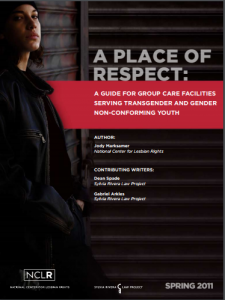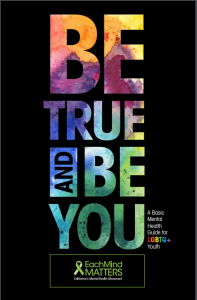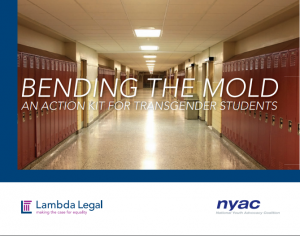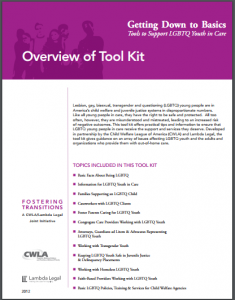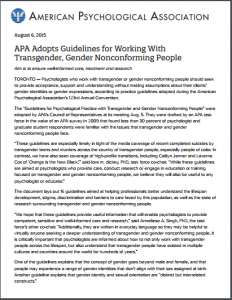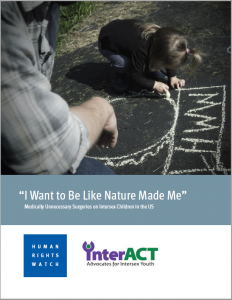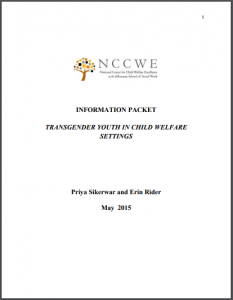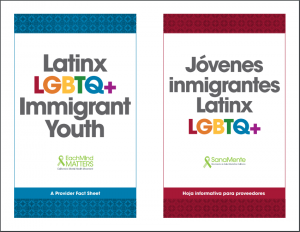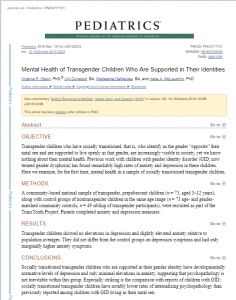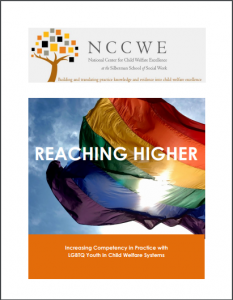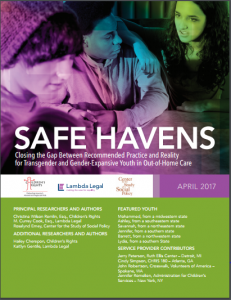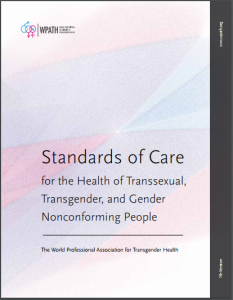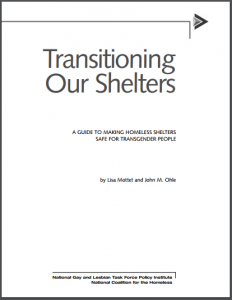This guide offers group care facilities information and tools to provide transgender and gender non-conforming youth with appropriate and informed care. It describes laws requiring facilities to protect these youth from harassment and abuse and to provide them with appropriate medical care. This publication assists staff in understanding the experiences and concerns of transgender and gender non-conforming youth, and responding to these youths’ safety, programmatic, and health care needs.
National Center for Lesbian Rights and Sylvia Rivera Law Project (2011)



